Obituary: Joan M. Arias
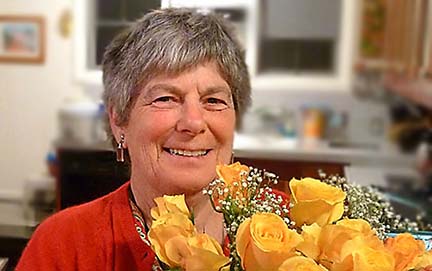
Wife, grandmother, author, intellectual, volunteer, traveler
New Jersey native and former Claremont resident Joan Arias died August 18, 2017—without pain and surrounded by loved ones—after a brief struggle with cancer. She was 76.
She arrived at UCLA in 1965 as a doctoral student in the Spanish and Portuguese departments, having just completed a year abroad studying Venezuelan theater on a Fulbright scholarship. With a bachelor’s degree from Douglass College in New Brunswick, New Jersey, and a master’s from the University of Illinois, she began her studies with an emphasis on Spain’s golden age literature. In early 1966 she met and married fellow UCLA student Ron Arias, a union that would thrive for 51 years, and produced two sons, Michael and Jonathan.
“It’s so trite to say she was the light of my life, but she really was my love-of-life light, my intellectual light, the one who often pushed me to finish tasks, finish whatever I started,” Mr. Arias said.
The Arias’ love story was featured in a moving, two-part cover story in Hermosa Beach’s Easy Reader News. Links to both pieces are here: easyreadernews.com/joan-arias, and easyreadernews.com/joan-ron-love-story.
Ms. Arias received her doctorate in Hispanic languages and literature in 1975. Her dissertation, Guzmán de Alfarache: The Unrepentant Narrator, was published in 1977 by Tamesis Books. Among the schools at which she taught were Georgetown University, Cal State University, San Bernardino, and for 13 years, the University of La Verne, where she often directed the school’s summer Spanish program in Cuernavaca, Mexico. During her time at ULV she also taught several semesters of Spanish literature in the college program at Youth Training School in Chino.
In 1976—on the day the family moved to Claremont—the Arias’ six-year-old son Jonathan Carlos was killed in a freak auto accident. The family remained in Claremont until 1984, when Michael graduated from the Webb Schools.
Following the tragedy, Ms. Arias returned to work. She tried grief groups and counseling, and then started swimming. “It was the only thing that made me feel better,” she said. She swam regularly at the Claremont Tennis Club (now the Claremont Club) during the family’s decade in Claremont, and every day wherever she was for the rest of her life.
Though she loved teaching, Ms. Arias also wanted to broaden her interests beyond the classroom. To that end, she left academia in 1982 to work for two years as an education specialist for the Southern California Earthquake Preparedness Project, instructing schools, hospitals and businesses on quake readiness. The work included a study mission to Japan, which was commissioned by then Los Angeles Mayor Tom Bradley, and a USAID trip to Ecuador, where she lectured and consulted with local officials.
Then in 1983, she joined IBM as a liaison between the company and university humanities departments across the US, consulting on how computers could best be used in the liberal arts. Throughout her 26 years with IBM, Ms. Arias traveled the globe in various capacities. Invariably, the places dearest to her in her sales support and consulting visits were Brazil, Spain, and many countries in Latin America. By far her favorite city in the world was Buenos Aires. She and her family moved away from California several times, including stints in Caracas, Venezuela and Stamford, Connecticut, before settling in Hermosa Beach in 1997.
After her retirement in 2008, she studied for a paralegal degree and became a volunteer at the self-help center of the Legal Aid Foundation of Los Angeles in Torrance, often speaking with litigants in Spanish, Portuguese, French and Japanese.
“The main reason I feel so positive about my volunteer work at the Legal Aid Foundation is because I am able to articulate to desperate people what it is they need to do to get where they want to be,” Ms. Arias told The Beach Reporter in 2014. “I can simplify and break things into meaningful steps so that our legal system isn’t so overwhelming.”
She was also “stalwart” and secretary of the South Bay League of Women Voters, and was quite active and civically engaged in Hermosa Beach politics.
Ms. Arias always kept close ties with UCLA faculty and alumni. She was an enthusiastic supporter of the fundraising efforts of Spanish and Portuguese department alumni and of the South Bay Bruins Association’s funding of scholarships for community college transfer students to UCLA.
Mr. Arias recalled a conversation from about 25 years ago that took place at the family’s Connecticut home.
“At the time, Mike Carrol, the photographer, and I were despairing and at a loss over how to make a certain story assignment by People Magazine come alive,” Mr. Arias recalled. “It involved having to follow an unsolved murder case for a year. The managing editor wanted to know how the disappearance of a young woman driving back to her Iowa college would affect her New Jersey family. Her empty car was found on the shoulder of I-80 west of Chicago, and many days later her well-preserved, bloodless body was found wrapped in an unstained sheet by the side of an interstate off-ramp. Mike and I kept visiting the family, talked to police and the FBI investigators, and they had no or few leads. The family of the young student, Tammy Zywicki, were grieving, and provided little beyond tears. Such a story needed substance, a widening of facts, range of people and a strong narrative drive. We didn’t see a way out of what we saw a slog.
“Then Joan, over dinner, saw us moping and woke us up to all the possibilities. She was more than just smart—she was sensitive to family loss (we too had lost a child years before) and its aftermath. She inspired us with suggestions. Newly charged, we crisscrossed the country, interviewing and photographing many other subjects involved in the story—her schoolmates, her teachers, forensic experts, the coroner, a psychic, police in several states, truckers who saw her alive outside her car (plenty of gas and no engine problems), on and on. The story blossomed and after many months it appeared as an 11-page piece that was text-heavy but with appropriate, moving photos. It was the longest single piece in People publishing history, I was told. And it came out with great success mostly because Joan pushed us.
“I could go on and on, but it’s like trying to describe in words a particular kind of universe that a person can contain in one brain. Joan seemed to have infinite capacity. And I’ve only covered relatively few constellations.”
Ms. Arias was predeceased by her son, Jonathan Carlos. Her remains are interred at Claremont’s Oak Park Cemetery, next to Jonathan’s. A memorial celebration was held last month at the Arias family home.
Ms. Arias is survived by her husband Ron, a writer living in Hermosa Beach; and her son Michael, a filmmaker residing in Japan, and three grandsons, also in Japan.
Memorial contributions may be made to the Joan M. Arias Memorial Graduate Fund at the UCLA Department of Spanish and Portuguese. Checks should be made out to “UCLA Foundation,” with “Joan M. Arias Memorial Graduate Fund” in the memo line, and mailed to UCLA College of Letters and Science, Division of Humanities, Joan M. Arias Fund, 1309 Murphy Hall, Box 951413, Los Angeles, CA 90095. To donate online, email jking@support. ucla.edu for information.


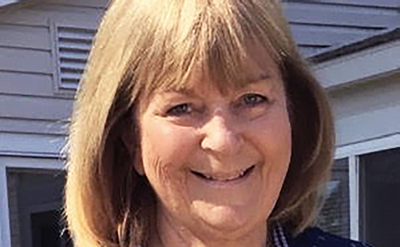
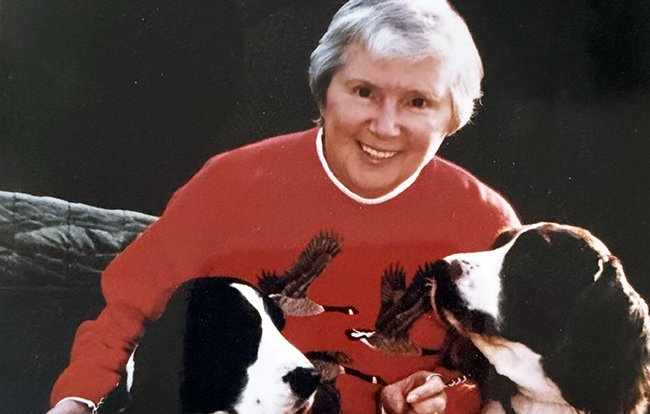
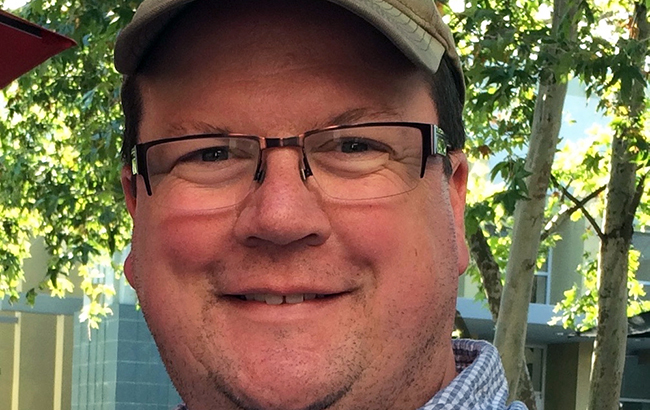
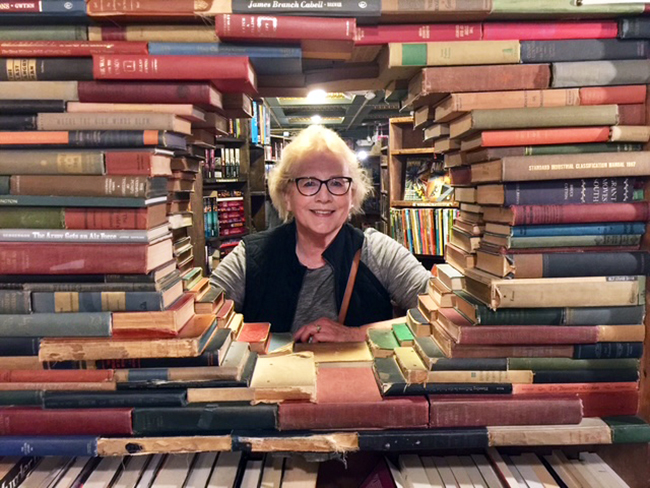
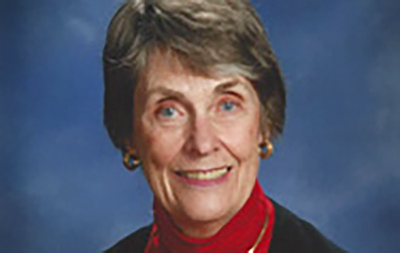
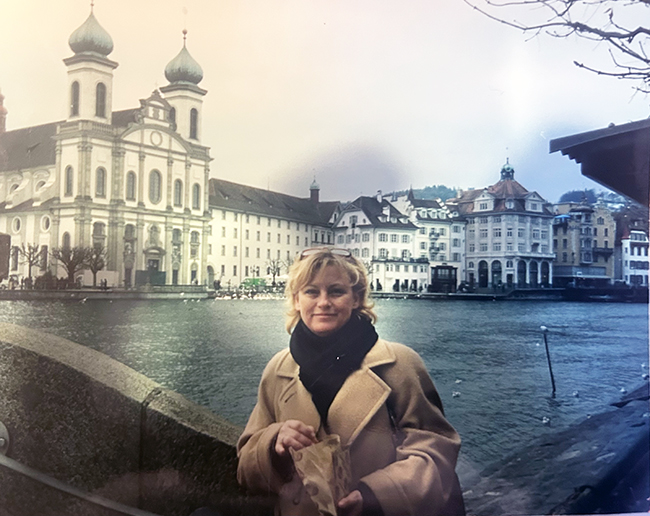

0 Comments